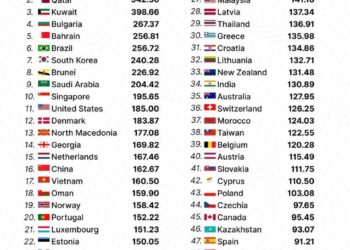Select Language:
Germany is embracing cutting-edge technology like never before to modernize its military forces. A new era is dawning, where artificial intelligence, drones, and even insect-inspired surveillance tools are becoming integral to national security strategies.
What once belonged to the realm of science fiction—such as robot cockroaches that collect real-time intelligence through cameras—is now transitioning into tangible defense solutions, fueling a burgeoning industry in the country.
This shift is largely motivated by the ongoing conflict in Ukraine and increasing global tensions. A prominent German defense startup is at the forefront of this transformation, reshaping how Germany perceives its security and its role within Europe’s defense landscape.
Gundbert Scherf, co-founder of Helsing, a Munich-based company, leads a venture that has become Europe’s most valuable defense startup. Established just four years ago, Helsing initially faced difficulties attracting investment. The company develops military drones and battlefield artificial intelligence. Today, its valuation has more than doubled to around $12 billion after its latest funding round.
“Europe is spending more on defense technology than the U.S. for the first time in decades,” Scherf states. The former McKinsey & Company partner suggests Europe might be on the verge of a defense innovation revolution comparable to the historic Manhattan Project during World War II, which hastened the development of nuclear weapons.
“Europe is finally coming to terms with the importance of defense,” he adds.
In a recent interview, Reuters spoke with twenty-five industry leaders, investors, and policymakers to understand how Germany, Europe’s largest economy, aims to lead the continent’s rearmament efforts. The German government under Chancellor Friedrich Merz views AI and startup innovation as pivotal to its defense strategy, eliminating bureaucratic hurdles and establishing direct links between startups and the military.
Historically, Germany’s military sector has been cautious, influenced by its past under Nazi rule and subsequent pacifist policies. It relied heavily on U.S. security guarantees, favoring gradual improvements over disruptive innovations. However, this approach is changing. With U.S. military support appearing less reliable and as Germany becomes a significant supporter of Ukraine, Berlin plans to nearly triple its defense budget to approximately €162 billion ($175 billion) annually by 2029.
Much of this investment will focus on redefining warfare itself. Helsing and other German startups are developing advanced technologies, from AI-controlled robots resembling tanks and autonomous mini-submarines to espionage tools like bio-inspired surveillance insects.
“Our goal is to help Europe regain its strategic independence,” Scherf explains.
Some smaller firms are now advising the government alongside established defense contractors like Rheinmetall and Hensoldt, which tend to prioritize traditional systems due to lengthy backlog issues. To facilitate innovation, a new draft procurement law approved recently aims to simplify how startups participate in defense contracts, including provisions for advance payments and limiting bidding to EU-based companies.
Marc Wietfeld, CEO of ARX Robotics—specializing in autonomous robots—highlighted a recent meeting with Defense Minister Boris Pistorius, signaling a significant shift in Berlin’s defense mindset. “He told me, ‘Money is no longer an issue—it’s available now,’” Wietfeld says, marking a turning point.
Since Donald Trump’s tenure, Germany has committed to increasing its defense spending to meet NATO’s target of 3.5% of GDP by 2029—faster than most European allies. Officials advocate for developing a robust European defense industry, reducing reliance on U.S. suppliers. Nonetheless, Europe’s fragmented market and varying procurement standards pose challenges compared to the U.S., which already boasts defense giants like Lockheed Martin and Raytheon, and an established advantage in areas like satellite technology and missile systems.
The U.S. has long supported defense startups through contracts, fostering innovation in companies like Shield AI, Anduril, and Palantir. European startups have historically lacked similar backing but are now gaining momentum. According to recent analysis, European countries collectively plan to spend over $180 billion on military procurement this year—outpacing the U.S. in total expenditure.
However, integrating new technologies into traditional defense procurement remains a challenge. Germany’s defense ministry is actively working to streamline processes to make it easier for startups to supply the military directly. The head of the procurement agency, Annette Lehnigk-Emden, emphasizes the revolutionary potential of emerging fields like drones and AI, comparing their impact to iconic technological introductions like the machine gun or airplane.
Public attitudes toward defense have also evolved. Sven Weizenegger, head of the Bundeswehr’s Cyber Innovation Hub, notes that support for defense initiatives has increased significantly since Russia’s invasion of Ukraine. This cultural shift has led to a surge in innovative ideas, including some that resemble science fiction—like Swarm Biotactics’ bioengineered cockroaches equipped with cameras for surveillance. These “cyborg insects” can be remotely controlled using electrical signals, allowing reconnaissance in hostile environments.
Germany’s scientific community has historically pioneered military technologies, from ballistic missiles to jet aircraft, before WWII. Notable figures like Wernher von Braun, who contributed to nuclear missile development and later space exploration, exemplify Germany’s past scientific prestige. Today, defense innovation continues to drive economic growth. In the face of economic challenges—including soaring energy costs, declining exports, and stiff competition from China—investing in advanced military R&D could provide a significant boost.
Markus Federle, managing partner at Tholus Capital, emphasizes that building a resilient defense industry can translate into broader economic strength and innovation.
Once hindered by high risks, the European defense startup scene is now gaining traction thanks to increased spending. Notable unicorns like Helsing, German drone manufacturer Quantum Systems, and Portugal’s Tekever exemplify this trend. Germany has become Ukraine’s second-largest military supporter after the U.S., and streamlined approval processes are enabling startups to deploy and test their technologies more rapidly.
Venture capital investment in European defense tech hit a record $1 billion in 2024—more than doubling from 2022—and is expected to grow further. Society’s recognition of the importance of defending democracy has propelled this push, with Germany leading Europe in startup funding. Analyzing data from Dealroom, industry experts highlight that Germany has secured the most defense-related funding over the past five years, followed by the UK.
Experts like Jack Wang from Project A believe that Germany’s engineering talent and manufacturing capacity—particularly in small and medium-sized enterprises—position the country well to become a leader in global defense innovation. With automotive manufacturing slowing, these companies can pivot to support defense startups, providing the “muscle” needed for prototype development and production.
In summary, Germany is rapidly transforming its defense landscape, embracing innovation, and positioning itself—and Europe—for a future where technological prowess and strategic independence go hand in hand.







